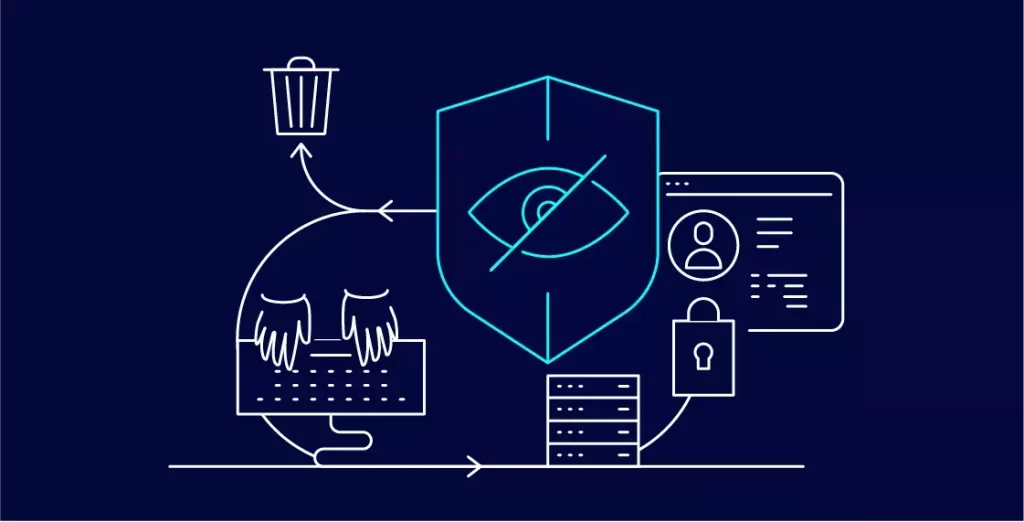In the rapidly evolving digital marketplace, eCommerce security is a crucial aspect that demands constant attention and improvement. As online shopping becomes more prevalent, the need to protect customer data has never been more imperative. This blog post delves into the various strategies and best practices for enhancing e-commerce security and ensuring the safety of customer information in the digital age.
Understanding the Importance of E-commerce Security
eCommerce security refers to the measures taken to protect online transactions and customer data from cyber threats. In an age where data breaches are increasingly common, e-commerce security is not just a technical necessity but a cornerstone of customer trust. By prioritizing e-commerce security, businesses not only safeguard their assets but also reinforce their reputation and customer loyalty.
- E-commerce Security Definition: It refers to measures for protecting online transactions and customer data against cyber threats.
- Beyond Technical Necessity: e-commerce security is essential not just for technical reasons but also for building customer trust. It’s a fundamental aspect that influences how customers perceive and trust a brand.
- Asset Protection and Reputation: By prioritizing e-commerce security, businesses protect their financial assets and enhance their reputation, leading to increased customer loyalty.

The Rise of Cyber Threats in E-commerce
With the growth of online retail, cyber threats have become more sophisticated and frequent. Hackers are continually devising new methods to exploit vulnerabilities in e-commerce platforms. This makes it crucial for businesses to stay ahead of these threats by implementing robust e-commerce security measures.
- Growth of Online Retail and Threats: As e-commerce expands, cyber threats evolve to become more sophisticated, targeting online retail platforms.
- Continuous Threat Evolution: Hackers constantly create new methods to exploit any weaknesses in e-commerce systems, necessitating proactive and dynamic security measures.
Strategies to Enhance E-commerce Security
Implementing effective strategies to enhance e-commerce security involves several key steps:
Regular Security Audits
Conducting regular security audits is essential. These audits help in identifying potential vulnerabilities in the e-commerce platform and ensure that all security measures are up-to-date.
Secure Payment Gateways
Using secure and reputed payment gateways is crucial for e-commerce security. These gateways use encryption and other security measures to protect customer data during transactions.
Data Encryption
Encrypting data is a fundamental aspect of e-commerce security. Encryption ensures that customer data is unreadable and secure, even in the event of a data breach.
Protecting Customer Data: A Priority

Protecting customer data should be a top priority for every e-commerce business. This involves not only securing the data from external threats but also ensuring that it is handled responsibly and in compliance with privacy laws.
- Top Priority for e-Commerce Businesses: Safeguarding customer data involves protecting it from external threats and ensuring responsible handling in compliance with privacy laws.
- Educating Stakeholders: Educating both customers and employees about safe online practices is crucial in minimizing the risks of data breaches.
Educating Customers and Employees
Part of protecting customer data involves educating both customers and employees about safe online practices. This education can significantly reduce the risk of data breaches and other security incidents.
Implementing Strong Authentication Measures
Strong authentication measures, such as two-factor authentication, add an extra layer of security to e-commerce transactions, further protecting customer data.
Two-Factor Authentication: This adds a layer of security, making e-commerce transactions more secure and protecting customer data more effectively.
Advanced Technologies in e-commerce Security
The use of advanced technologies plays a significant role in enhancing e-commerce security.
- Artificial Intelligence and Machine Learning: These technologies are used to detect and prevent fraud in real-time, enhancing the overall security of e-commerce platforms.
- Blockchain Technology: Offers a decentralized approach to transaction and data security, presenting a new frontier in e-commerce security solutions.
Artificial Intelligence and Machine Learning
Artificial intelligence (AI) and machine learning can be used to detect and prevent fraudulent activities in real time, significantly boosting e-commerce security.
Blockchain Technology
Blockchain technology offers a decentralized approach to secure transactions and customer data, making it a promising tool in the realm of e-commerce security.
The Future of e-commerce Security
As technology evolves, so do the challenges and solutions in e-commerce security. Staying informed about the latest trends and threats is crucial for businesses to protect customer data effectively.
- Evolving Technology and Threats: As technology advances, so do the methods of cyber threats, requiring businesses to stay informed and adapt their security measures accordingly.
- Continuous Improvement: e-commerce security requires an ongoing commitment to improvement and adaptation to new challenges.
- Global Collaboration: Collaboration between businesses, security experts, and regulatory bodies is key to developing more effective security strategies and standards.
Embracing Continuous Improvement
e-commerce security is not a one-time effort but a continuous process. Businesses must be committed to regularly updating and improving their security measures.
Ongoing Process: e-commerce security is described as a dynamic, ongoing process rather than a static, one-time setup. The digital landscape, including cyber threats, is constantly evolving, which necessitates continual updates and adaptations in security measures.
Regular Updates and Improvements: Businesses are encouraged to regularly review and upgrade their security protocols. This could involve updating software, patching vulnerabilities, and staying abreast of new security technologies and methods.
Proactive Stance: Embracing continuous improvement in e-commerce security means businesses must proactively seek ways to strengthen their defenses rather than reacting to breaches after they occur. This proactive approach includes staying informed about the latest cybersecurity trends and threats.
Adaptation to New Challenges: As new types of cyber threats emerge, e-commerce security threats measures must evolve to counter them effectively. This requires a commitment to learning, adapting, and implementing new strategies and technologies as they become available.
Global Collaboration
Collaboration among businesses, security experts, and regulatory bodies worldwide is essential in creating a safer e-commerce environment for everyone.
Collaborative Efforts: The blog emphasizes the importance of collaboration among various entities worldwide, including businesses, security experts, and regulatory bodies. This collaboration is crucial in creating a unified approach to tackle e-commerce security challenges.
Sharing Knowledge and Resources: By working together, different stakeholders can share valuable insights, experiences, and resources. This exchange of information can lead to more effective security solutions that benefit all parties involved.
Setting Standards and Best Practices: Global collaboration can aid in the development and standardization of best practices and security protocols. This helps in creating a more consistent and secure e-commerce environment across different regions and platforms.
Regulatory Compliance: Collaborating with regulatory bodies ensures that e-commerce security measures are not only effective but also compliant with international laws and regulations. This is particularly important as data protection and privacy laws vary across countries.
Unified Response to Threats: A collaborative approach allows for a more robust and unified response to global cyber threats. When businesses and security experts from around the world work together, they can more effectively identify, respond to, and mitigate the impact of these threats.
Conclusion
Enhancing e-commerce security and protecting customer data are critical in building a trustworthy and secure online shopping environment. By implementing robust security measures, staying abreast of technological advancements, and fostering a culture of continuous improvement, e-commerce businesses can not only safeguard their operations but also earn the enduring trust of their customers.
What is security in e-commerce?
Security in e-commerce refers to the measures and protocols put in place to protect sensitive information and ensure a secure environment for online transactions. It involves safeguarding customer data, such as personal details and payment information, from unauthorized access, fraud, and data breaches. E-commerce security typically includes encryption, secure payment gateways, SSL certificates, firewalls, and other security measures to maintain the privacy and integrity of online transactions.
How do I make my e-commerce secure?
To make your e-commerce website secure, you can follow these steps:
1. Implement an SSL certificate to encrypt data transmission between your website and users.
2. Regularly update your website’s software, including the content management system (CMS), plugins, and themes, to patch security vulnerabilities.
3. Use strong and unique passwords for all user accounts and encourage your customers to do the same.
4. Enable a firewall to protect your website from unauthorized access and malicious attacks.
5. Install a trusted security plugin or software that offers features like malware scanning, brute force protection, and login security.
6. Use a reliable web hosting provider that prioritizes security measures, such as regular backups and server-level security configurations.
7. Employ a secure payment gateway to ensure the safety of customer financial information.
8. Educate yourself and your team about common security threats and best practices to prevent phishing attacks, malware infections, and other security breaches.
9. Regularly back up your website data and store backups in a secure location.
10. Monitor your website for suspicious activities and implement a system for real-time alerts.
By implementing these measures, you can enhance the security of your e-commerce website and protect both your business and your customers’ sensitive information.
What is the six e-commerce security?
The six e-commerce security measures are:
1. SSL/TLS Encryption: Implement SSL/TLS certificates to encrypt data transmitted between the website and users, ensuring secure communication.
2. Secure Payment Gateways: Use reputable and secure payment gateways to process transactions, protecting customers’ financial information.
3. Firewall Protection: Employ a firewall to monitor and filter incoming and outgoing network traffic, safeguarding against unauthorized access and potential attacks.
4. Regular Software Updates: Keep all e-commerce software, plugins, and CMS platforms up-to-date to fix vulnerabilities and security loopholes.
5. Strong Passwords: Encourage users to create strong passwords and implement password policies to prevent unauthorized access to user accounts.
6. Regular Security Audits: Conduct regular security audits to identify and address any potential security risks or vulnerabilities on the e-commerce website.


